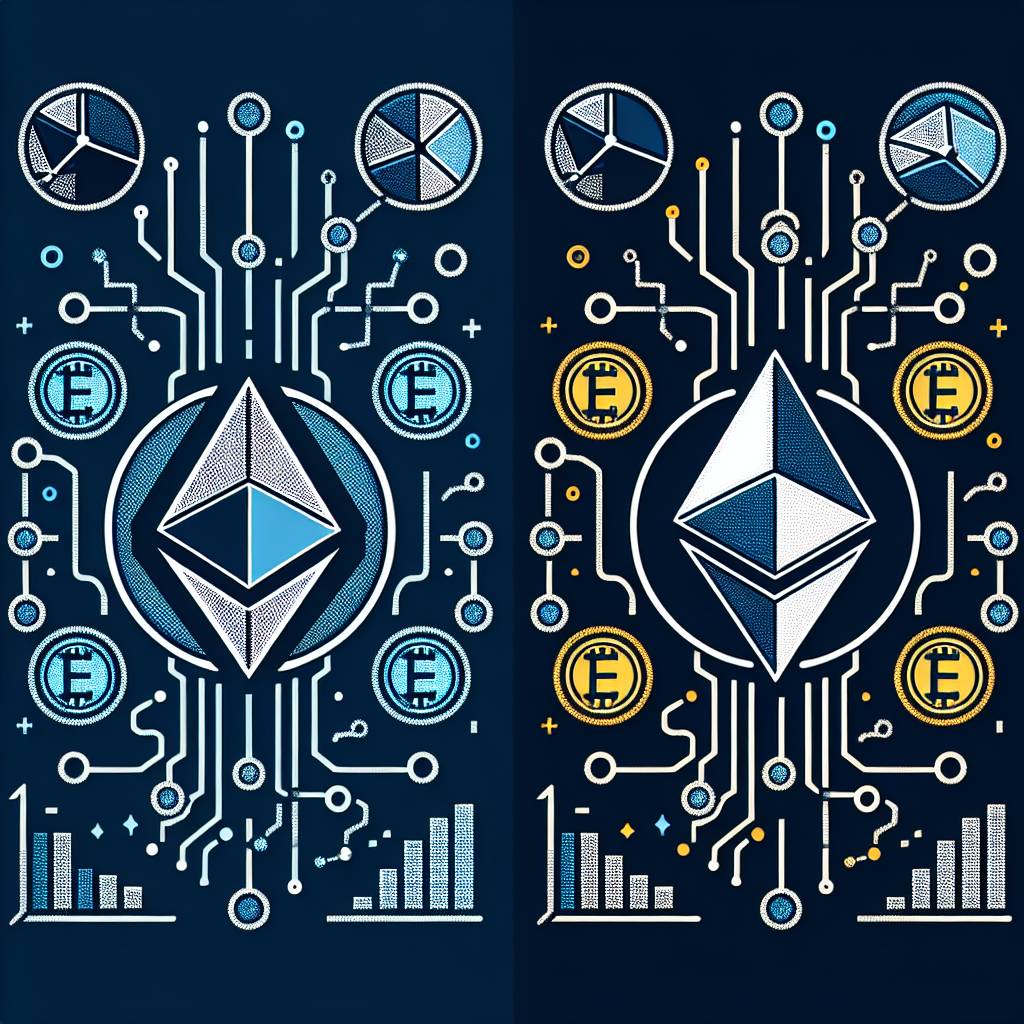What are the key distinctions between tokens and coins when it comes to cryptocurrency?
Can you explain the main differences between tokens and coins in the context of cryptocurrency? How do they differ in terms of functionality, purpose, and underlying technology?

4 answers
- Tokens and coins are two different types of digital assets in the world of cryptocurrency. While both can be used as a form of digital currency, they have distinct characteristics and purposes. Coins, such as Bitcoin and Ethereum, are native to their respective blockchains. They have their own independent networks and operate as standalone cryptocurrencies. Coins are typically used as a medium of exchange and store of value. They have their own consensus mechanisms and are often mined or staked to secure the network. On the other hand, tokens are built on top of existing blockchain platforms, like Ethereum. They rely on the underlying blockchain's infrastructure and protocols to function. Tokens can represent various assets, such as utility, security, or even real-world assets. They are often created through smart contracts and can be used for specific purposes within decentralized applications (DApps) or as a means of crowdfunding through Initial Coin Offerings (ICOs). In summary, coins are independent digital currencies with their own networks, while tokens are built on existing blockchains and serve specific purposes within decentralized applications or fundraising events.
 Dec 16, 2021 · 3 years ago
Dec 16, 2021 · 3 years ago - When it comes to tokens and coins in the cryptocurrency world, the key distinction lies in their underlying technology and purpose. Coins, like Bitcoin and Litecoin, are standalone digital currencies that operate on their own blockchain networks. They are designed to be used as a medium of exchange and store of value. Coins have their own consensus mechanisms, such as proof-of-work or proof-of-stake, to secure the network and validate transactions. On the other hand, tokens are created on existing blockchain platforms, such as Ethereum or Binance Smart Chain. They rely on the infrastructure and protocols of these platforms to function. Tokens can represent various assets, including utility tokens for accessing services within a decentralized application, security tokens that represent ownership in a real-world asset, or even stablecoins that are pegged to a fiat currency. In summary, coins are independent digital currencies with their own networks and consensus mechanisms, while tokens are built on existing blockchains and serve specific purposes within the ecosystem.
 Dec 16, 2021 · 3 years ago
Dec 16, 2021 · 3 years ago - Tokens and coins are two distinct entities in the cryptocurrency space. Coins, like Bitcoin and Ethereum, are standalone digital currencies that have their own blockchain networks. They are used as a medium of exchange and can be stored as a form of value. Coins are typically mined or staked to secure the network and validate transactions. On the other hand, tokens are created on existing blockchain platforms, such as Ethereum or Binance Smart Chain. They rely on the underlying infrastructure and protocols of these platforms to function. Tokens can represent various assets, including utility tokens for accessing specific services, security tokens that represent ownership in a real-world asset, or even governance tokens that allow holders to participate in decision-making processes within a decentralized ecosystem. To summarize, coins are independent digital currencies with their own networks, while tokens are built on existing blockchains and serve specific purposes within the decentralized ecosystem.
 Dec 16, 2021 · 3 years ago
Dec 16, 2021 · 3 years ago - Tokens and coins are two different types of digital assets in the cryptocurrency world. Coins, such as Bitcoin and Litecoin, are standalone currencies that operate on their own blockchain networks. They are designed to be used as a medium of exchange and store of value. Coins have their own consensus mechanisms, like proof-of-work or proof-of-stake, to secure the network and validate transactions. On the other hand, tokens are created on existing blockchain platforms, like Ethereum or Binance Smart Chain. They rely on the underlying infrastructure and protocols of these platforms to function. Tokens can represent various assets, such as utility tokens for accessing services within decentralized applications, security tokens that represent ownership in real-world assets, or even governance tokens that enable holders to participate in decision-making processes within a decentralized ecosystem. In summary, coins are standalone digital currencies with their own networks, while tokens are built on existing blockchains and serve specific purposes within the decentralized ecosystem.
 Dec 16, 2021 · 3 years ago
Dec 16, 2021 · 3 years ago
Related Tags
Hot Questions
- 98
What is the future of blockchain technology?
- 68
Are there any special tax rules for crypto investors?
- 66
How does cryptocurrency affect my tax return?
- 63
What are the tax implications of using cryptocurrency?
- 52
What are the advantages of using cryptocurrency for online transactions?
- 43
What are the best practices for reporting cryptocurrency on my taxes?
- 36
What are the best digital currencies to invest in right now?
- 21
How can I protect my digital assets from hackers?
